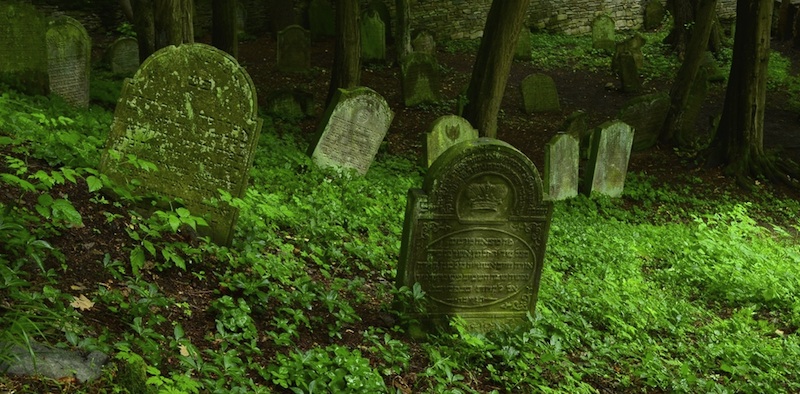Thoughts of Death Make Only the Religious More Devout

Thinking about death makes Christians and Muslims, but not atheists, more likely to believe in God, new research finds, suggesting that the old saying about "no atheists in foxholes" doesn't hold water.
Agnostics, however, do become more willing to believe in God when reminded of death. The only catch is that they're equally as likely to believe in Buddha or Allah as the Christian deity, even though all the agnostics in the study were American and thus more likely to be exposed to Christian beliefs.
The findings confirm that while religion can help people deal with death, we all manage our own existential fears of dying through our pre-existing worldview, the researchers report in an upcoming issue of the journal Personality and Social Psychology Bulletin.
"These studies offer an improved understanding of how and why religious individuals tend to believe so strongly in their own religion’s gods yet deny the gods of competing religions," the researchers wrote.
Religion and death
Plenty of research has shown that religion, which frequently promises an everlasting afterlife, helps people cope with the fact that they will die someday. But this use of religion is not universal. One 2006 study found that thoughts of death increased belief in supernatural figures in general for religious people. That study did not separate atheists from agnostics, nor did it examine how specific religious beliefs might influence the sort of supernatural figures a person might believe in. [Top 10 Unexplained Phenomena]
To find out, University of Missouri psychologist Kenneth Vail III and colleagues recruited 26 Christians, 28 atheists, 40 Muslims and 28 agnostics.. The participants were American college students, except for the Muslims, who were Iranians going to school in Iran. Each participant was tasked with writing either a brief essay about how they felt about their own death or a religiously neutral topic, such as loneliness or how to cope when plans go awry.
Get the world’s most fascinating discoveries delivered straight to your inbox.
After a brief verbal task to distract the participants from the true purpose of the study, they filled out questionnaires about their religious beliefs, including their faith in the Christian God or Jesus, Buddha and Allah.
Facing mortality
Unsurprisingly, when Christians thought of death, they became firmer in their beliefs than those Christians who hadn't been reminded of their mortality. They also became less accepting of Allah and Buddha, suggesting a closer adherence to their own worldview. Likewise, Muslims who thought of death became more faithful to Allah and less accepting of Buddha or the Christian God.
Atheists, who reject religion, showed none of these responses to thoughts of death. In other words, the myth that atheists turn to God on the battlefield or in other times of peril didn't hold up, Vail and his colleagues wrote. Along with other research, their study suggests that "atheists do not rely on religion when confronted with the awareness of death," they said.
Agnostics believe that the truth about God is unknowable. As far back as the 17th century, Catholic philosopher Blaise Pascal argued that if you don't know whether to believe in God, you should go ahead and do so — just to be safe. Pascal's Wager, as it's known, seemed to play out for the agnostics Vail and his colleagues studied. When they thought about their own mortality, these agnostics became more likely to believe in any deity, whether the Christian version, Allah or Buddha. In other words, they put their money on all three.
The findings show how differently people manage their thoughts of death, Vail and his colleagues wrote. Future research might focus on spiritual types who believe in many paths to God, they said, or perhaps on non-theistic belief systems such as Confucianism or Taoism.
Follow Stephanie Pappas on Twitter @sipappas or LiveScience @livescience. We're also on Facebook & Google+.

Stephanie Pappas is a contributing writer for Live Science, covering topics ranging from geoscience to archaeology to the human brain and behavior. She was previously a senior writer for Live Science but is now a freelancer based in Denver, Colorado, and regularly contributes to Scientific American and The Monitor, the monthly magazine of the American Psychological Association. Stephanie received a bachelor's degree in psychology from the University of South Carolina and a graduate certificate in science communication from the University of California, Santa Cruz.


